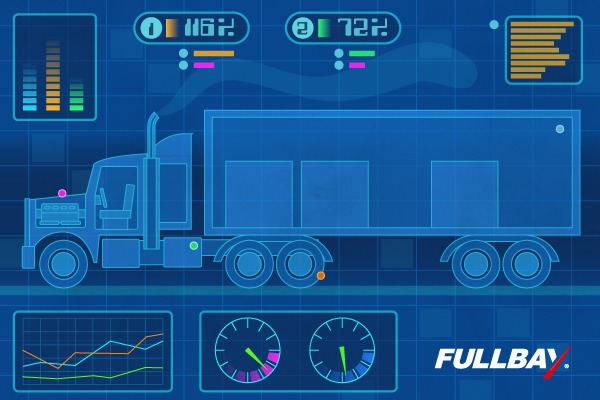Heavy Truck Diagnostics: To Charge or Not to Charge?


Heavy truck diagnostics is a valuable service you need to charge for. Not charging for diag will actually cause the problems you think you’re avoiding by not charging.
Many shops do not charge for heavy truck diagnostics. This is a mistake. Charging to diagnose a heavy duty truck’s issues is a fair way to compensate a shop for the time and materials required to properly identify the true cause of a customer’s complaint.
While it’s true there are exceptions (e.g. running light is out), the standard practice of your shop should be to charge an hour for a check-in inspection and diagnostics on a heavy duty truck.
Misdiagnosis will cost both the shop and the customer money. It’s a well documented problem in the medical world. It is also common in diesel repair.
Heavy Truck Diagnostics is a Win-Win
Our philosophy is that every transaction should be a win-win arrangement. Both the shop and the customer should benefit. So how does the customer win by charging for heavy truck diagnostics? Let’s look at how the customer actually loses by not being charged for the diag.
The Losses for Not Charging a Diag Fee
If the shop (and the tech if you are paying flat rate) are not being compensated for the diagnostics, the natural inclination is to rush it, to make it quick. On the surface, quick diagnostics seems to be a win for the customer. It is not.
In our article about finding the true cause of a complaint, we break down how important it is for a technician to keep digging to find the “true cause.” This is often different from what he may find after a quick diagnosis. The difference between a parts changer and a true technician is the ability isolate the true cause of a complaint.
Customer Losses
- Not finding the true cause results in recommending the wrong correction. The customer ends up paying for parts and labor that don’t resolve the original complaint. The customer loses because they overpay.
- The repair will take longer than promised, possibly causing a domino effect in their business, as they may need to scramble to backfill jobs this truck was supposed to do. The customer loses again.
Shop Losses
- The shop loses too. By throwing parts at a problem, to the customer it looks like the shop is trying to gouge them. And this is the real irony! This is the very fear keeping many shops from charging for a diag in the first place: they don’t want to look money grubbing. The reality is that NOT charging for a diag is what more often than not makes the shop look this way.
- The shop also loses because any promised completion time will be wrong, which gives an unprofessional impression.
- The delay can also cascade through the shop, causing other customers’ jobs to be late because more effort has to be put in to fix what should have been diagnosed right the first time.
- Finally, the truck may leave the shop with an incomplete repair, causing a customer comeback. This is a loss for the shop and for the customer.
The Wins from Charging for Heavy Truck Diagnostics
- Charging for heavy truck diagnostics gives the shop the breathing room to not rush the diag. The customer puts money on the table, and thereby has skin in the game.
- The shop is fairly compensated to find the true cause of the complaint.
- The customer is protected from footing the bill for the results of a bad diag, and from having their truck down longer than is necessary.
Charging a customer for heavy truck diagnostics truly is a win-win arrangement.
What About Exceptions?
Rolling the Heavy Truck Diagnostics Into Repair Cost
Some shops want to roll the cost of the diag into the actual repair. That’s a business decision they have to make. But these shops need to recognize that good diagnostics work on a heavy duty truck is a valuable service, and they can feel justified in charging for it separately. They are essentially giving the work away for free in exchange for getting the repair job. (If your efficiency is running under 100%, take a hard look at charging for diag. This could make a big difference for you.)
The sense of the shop may be that they don’t charge for diag because they usually get the work, and so it’s rolled into the cost of the repair. The problem with this is that it can cause the very problems detailed above.
True Exceptions to the Rule
There are exceptions of course, like a running light that’s out, or a missing mud flap. As in everything there are exceptions to the rule, and this is where judgment comes in. But as a rule, you should be charging at least an hour for thorough diagnostics and check in inspection.
Your shop management software should make it clear to the customer when they request a repair that by submitting the request, they are authorizing at least one hour of diag.

